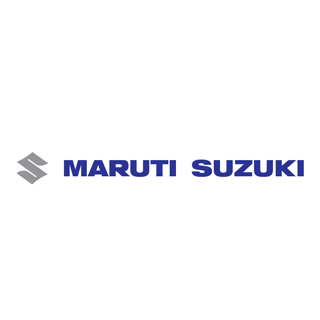India’s Industrial Surge: A New Era of Innovation and Sustainability
September 12, 2024, 3:34 am

Location: United States, California, San Francisco
Employees: 10001+
Founded date: 1938
Total raised: $6.4B

Location: India, Delhi, New Delhi
Employees: 10001+
Founded date: 1983
Total raised: $53.97M
India is on the brink of a transformative leap. The nation is not just a land of ancient traditions; it is becoming a powerhouse of modern innovation. Recent developments in various sectors signal a shift towards self-reliance and sustainability. From defense to electric vehicles, India is carving its niche on the global stage.
Take the defense sector, for instance. ACE, a leading construction equipment manufacturer, has secured a significant order from the Ministry of Defence. This order includes 99 specialized forklifts and 6 rough terrain cranes. These machines are not just metal and machinery; they are the backbone of operational efficiency in challenging terrains. The Ministry's commitment to using domestically produced equipment underlines a broader strategy: to bolster India's defense capabilities while promoting local manufacturing. The ‘Make in India’ initiative is not just a slogan; it’s a movement. It’s about building a robust defense infrastructure that can withstand the tests of time and terrain.
Next, let’s pivot to the energy sector. Tata Power-DDL and Nissin Electric are launching India’s first micro substation. This isn’t just a technical achievement; it’s a lifeline for remote areas. The micro substation will convert high-voltage electricity into low-voltage power suitable for homes. It’s a beacon of hope for communities that have long been in the dark. This project embodies the spirit of innovation, showcasing how technology can bridge gaps and empower lives.
Meanwhile, the automotive industry is revving up. Maruti Suzuki is set to launch its first electric vehicle (EV) with a remarkable range of 500 km. This mid-size SUV, likely named eVX, is more than just a car; it’s a statement. It signals a shift towards greener alternatives in a country where pollution has become a pressing issue. With a 60 kWh battery, this vehicle is designed for both Indian and international markets. It’s a game-changer, offering consumers a glimpse into a sustainable future.
But the momentum doesn’t stop there. India is positioning itself as an export hub for lithium-ion batteries. Union Minister Nitin Gadkari has announced that major players like Adani, Tata, and LG are ramping up production. This is not just about meeting domestic demand; it’s about taking a seat at the global table. As the world shifts towards renewable energy, India’s role in battery manufacturing could be pivotal. It’s a chance to lead in a sector that powers everything from smartphones to electric vehicles.
In the realm of waste management, Krystal Integrated Services has won a substantial contract from the Thane Municipal Corporation. This Rs 714 million contract is a testament to the growing importance of sustainable practices. With advanced fleet operations and innovative route optimization, Krystal is set to revolutionize waste management in the Mumbra region. This initiative is not just about cleaning up; it’s about creating a sustainable future. The deployment of 70 state-of-the-art vehicles and a dedicated team of over 300 professionals reflects a commitment to community welfare and environmental preservation.
These developments are interconnected. They form a tapestry of progress that highlights India’s potential. The defense sector strengthens national security. The energy sector illuminates lives. The automotive industry drives innovation. Waste management ensures a cleaner environment. Together, they create a holistic approach to development.
The upcoming 14th RAHSTA Expo in Mumbai is poised to showcase these advancements. It’s a platform for industry leaders to converge, share ideas, and explore new technologies. Events like these are crucial for fostering collaboration and innovation. They provide a glimpse into the future of construction, energy, and sustainability in India.
As India navigates this transformative journey, the focus remains on self-reliance and sustainability. The government’s initiatives are not just policies; they are blueprints for a brighter future. The commitment to ‘AatmaNirbhar Bharat’ is palpable. It’s about empowering local industries, creating jobs, and ensuring that the benefits of growth reach every corner of the nation.
However, challenges remain. The path to self-reliance is fraught with obstacles. Infrastructure needs to be robust. Technology must be accessible. Education and training are essential to equip the workforce. But with determination and innovation, these challenges can be overcome.
In conclusion, India stands at a crossroads. The developments in defense, energy, automotive, and waste management are not isolated incidents; they are part of a larger narrative. A narrative of resilience, innovation, and sustainability. As the nation embraces this new era, the world watches closely. India is not just participating in the global economy; it is shaping it. The future is bright, and the journey has just begun.
Take the defense sector, for instance. ACE, a leading construction equipment manufacturer, has secured a significant order from the Ministry of Defence. This order includes 99 specialized forklifts and 6 rough terrain cranes. These machines are not just metal and machinery; they are the backbone of operational efficiency in challenging terrains. The Ministry's commitment to using domestically produced equipment underlines a broader strategy: to bolster India's defense capabilities while promoting local manufacturing. The ‘Make in India’ initiative is not just a slogan; it’s a movement. It’s about building a robust defense infrastructure that can withstand the tests of time and terrain.
Next, let’s pivot to the energy sector. Tata Power-DDL and Nissin Electric are launching India’s first micro substation. This isn’t just a technical achievement; it’s a lifeline for remote areas. The micro substation will convert high-voltage electricity into low-voltage power suitable for homes. It’s a beacon of hope for communities that have long been in the dark. This project embodies the spirit of innovation, showcasing how technology can bridge gaps and empower lives.
Meanwhile, the automotive industry is revving up. Maruti Suzuki is set to launch its first electric vehicle (EV) with a remarkable range of 500 km. This mid-size SUV, likely named eVX, is more than just a car; it’s a statement. It signals a shift towards greener alternatives in a country where pollution has become a pressing issue. With a 60 kWh battery, this vehicle is designed for both Indian and international markets. It’s a game-changer, offering consumers a glimpse into a sustainable future.
But the momentum doesn’t stop there. India is positioning itself as an export hub for lithium-ion batteries. Union Minister Nitin Gadkari has announced that major players like Adani, Tata, and LG are ramping up production. This is not just about meeting domestic demand; it’s about taking a seat at the global table. As the world shifts towards renewable energy, India’s role in battery manufacturing could be pivotal. It’s a chance to lead in a sector that powers everything from smartphones to electric vehicles.
In the realm of waste management, Krystal Integrated Services has won a substantial contract from the Thane Municipal Corporation. This Rs 714 million contract is a testament to the growing importance of sustainable practices. With advanced fleet operations and innovative route optimization, Krystal is set to revolutionize waste management in the Mumbra region. This initiative is not just about cleaning up; it’s about creating a sustainable future. The deployment of 70 state-of-the-art vehicles and a dedicated team of over 300 professionals reflects a commitment to community welfare and environmental preservation.
These developments are interconnected. They form a tapestry of progress that highlights India’s potential. The defense sector strengthens national security. The energy sector illuminates lives. The automotive industry drives innovation. Waste management ensures a cleaner environment. Together, they create a holistic approach to development.
The upcoming 14th RAHSTA Expo in Mumbai is poised to showcase these advancements. It’s a platform for industry leaders to converge, share ideas, and explore new technologies. Events like these are crucial for fostering collaboration and innovation. They provide a glimpse into the future of construction, energy, and sustainability in India.
As India navigates this transformative journey, the focus remains on self-reliance and sustainability. The government’s initiatives are not just policies; they are blueprints for a brighter future. The commitment to ‘AatmaNirbhar Bharat’ is palpable. It’s about empowering local industries, creating jobs, and ensuring that the benefits of growth reach every corner of the nation.
However, challenges remain. The path to self-reliance is fraught with obstacles. Infrastructure needs to be robust. Technology must be accessible. Education and training are essential to equip the workforce. But with determination and innovation, these challenges can be overcome.
In conclusion, India stands at a crossroads. The developments in defense, energy, automotive, and waste management are not isolated incidents; they are part of a larger narrative. A narrative of resilience, innovation, and sustainability. As the nation embraces this new era, the world watches closely. India is not just participating in the global economy; it is shaping it. The future is bright, and the journey has just begun.
